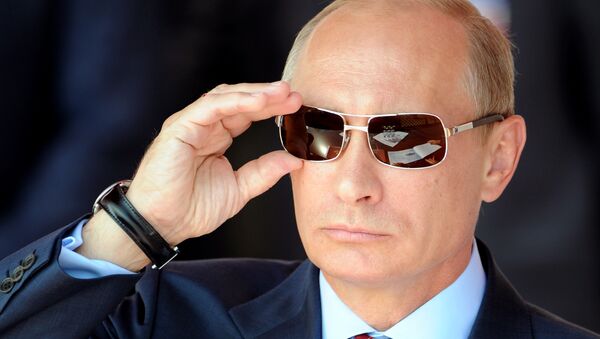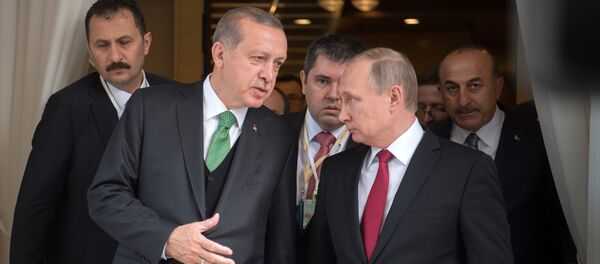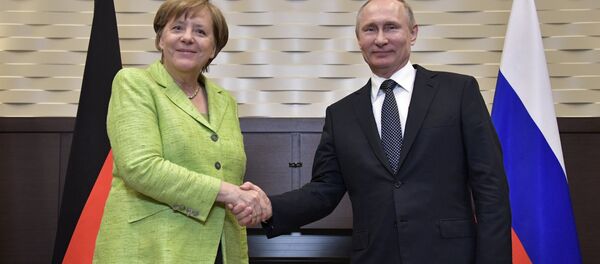Konstantin Kostin, director of the Civil Society Development Foundation, drew parallels between Putin and visionary statesmen of the 20th century. He compared Putin with US President Franklin D. Roosevelt, West Germany's first Chancellor Konrad Adenauer and General Charles de Gaulle, who established the Fifth Republic, pointing to their innovative approaches to dealing with major challenges and approval ratings.
"These politicians enjoyed high level of public support and trust. This is something that these leaders have in common," the analyst added.
Kostin further said that many in the West tend to think of Putin in terms of unpredictability.
"Everyone understands that Putin is a decisive politician. Thousands of articles on the Russian president have been published. I have read more than 20 books, with Western writers trying to explain Putin's motives. I think that the answer comes down to values. It is quite strange to see foreign leaders complain that the Russian president is unpredictable. Politics is like chess. The player whose moves cannot be figured out until the end of the game and who can better understand the tactic of his opponents has the advantage," the analyst explained.
Chairman of the Presidium of the Council on Foreign Affairs and Defense Policy Fyodor Lukyanov told Sputnik that those in the West who do not understand what is happening view Putin as "an extremely cunning strategic thinker," but this is purely "the psychology of fear" of Western elites.
Nikolai Mironov, who heads the Center for Economic and Political Reform, observed that Putin has not changed much in the years since he gained national prominence.
"Clearly he was younger then. Age has a certain bearing, adding more prominence," the analyst said. "But key rhetorical patterns and political instruments have not changed much. Putin has always positioned himself as a national leader who has united the country and is capable of instilling order."
Mironov pointed out that Putin's image was formed during his first years in office, the time when every effort was made to overcome the chaos of the 1990s. The analyst named Crimea's reunification with Russia as Putin's other major achievement.
"This is when the image of restoring a great country has appeared. This is the second challenge we had to deal with, the legacy of the 1990s and this one. These rhetoric and image have been rather successful," Mironov said.
At the same time, the analysts suggested that Putin is likely to shift his attention away from foreign policy to resolving domestic challenges during the remaining months of his presidency. This trend would only be reinforced if he runs and wins the next presidential election scheduled to be held in March 2018 since the image of an efficient leader could be adversely affected if no major domestic reforms are carried out, they added.
For his part, Lukyanov mentioned that foreign policy achievements are unlikely to improve domestic situation if the country's leadership does not focus on resolving challenges at home.
Putin has been at the helm for two decades, serving as both president and prime minister. He was reelected as Russia's president in 2012, with his current term running out in 2018. Putin has not unveiled whether he would take part in the next presidential election.If he does, he is likely to win up to 75 percent of the vote.
Never miss a story again — sign up to our Telegram channel and we'll keep you up to speed!







